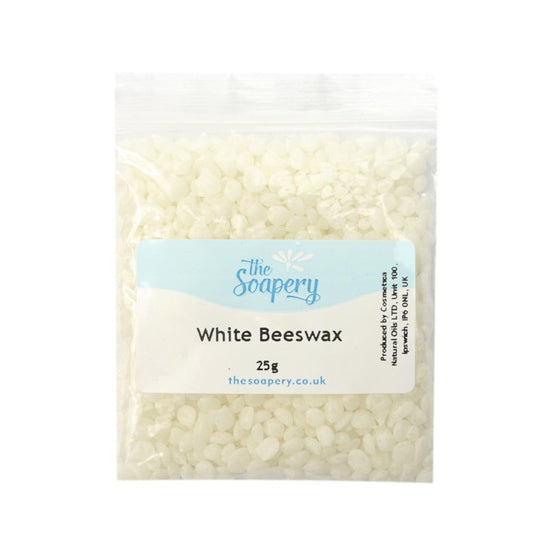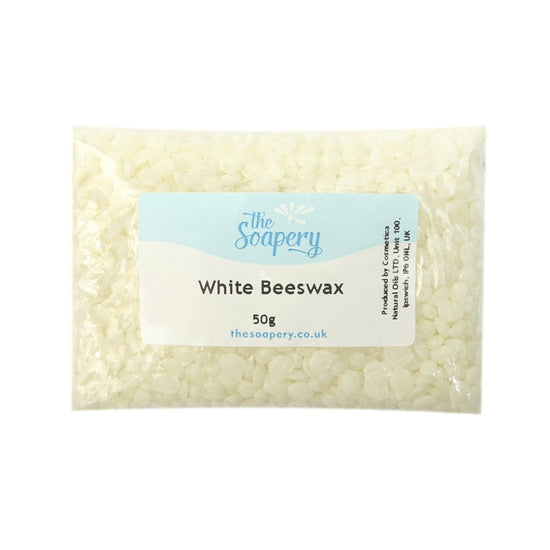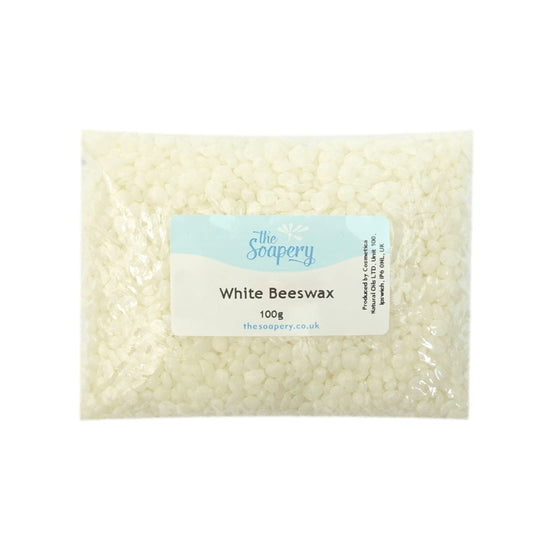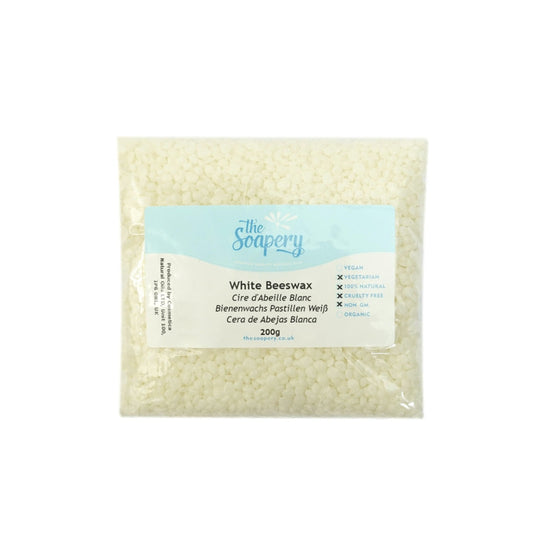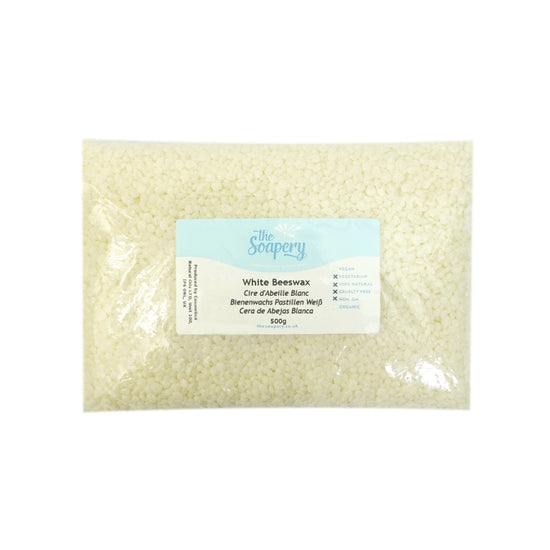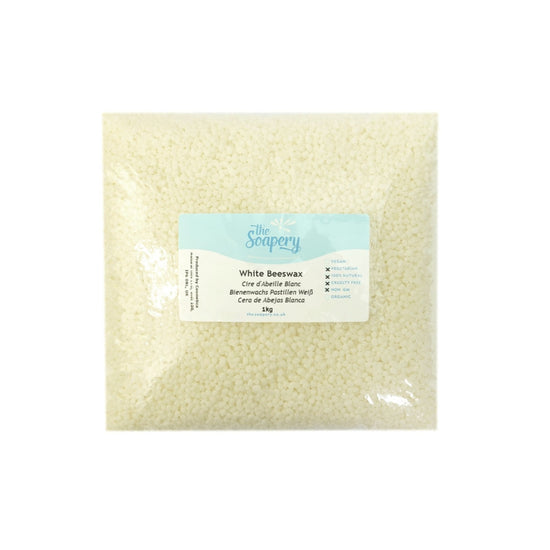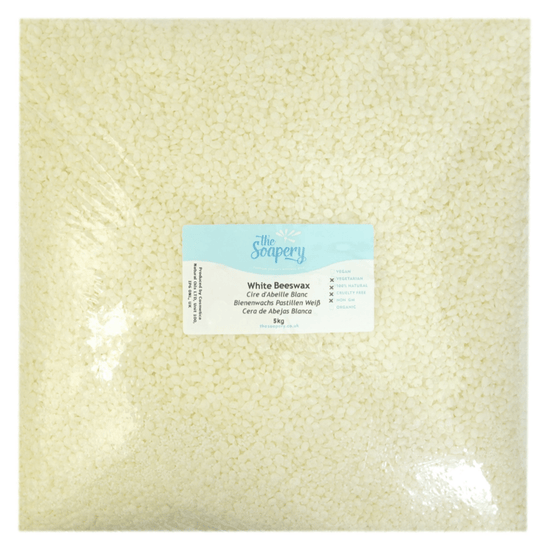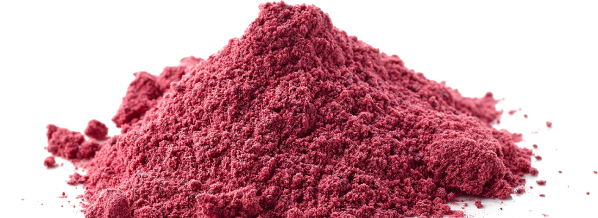
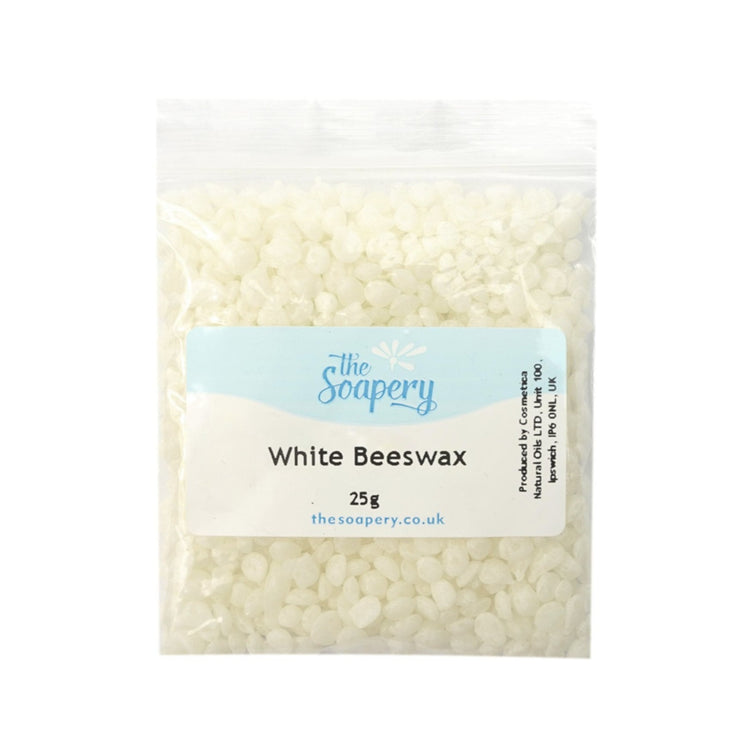
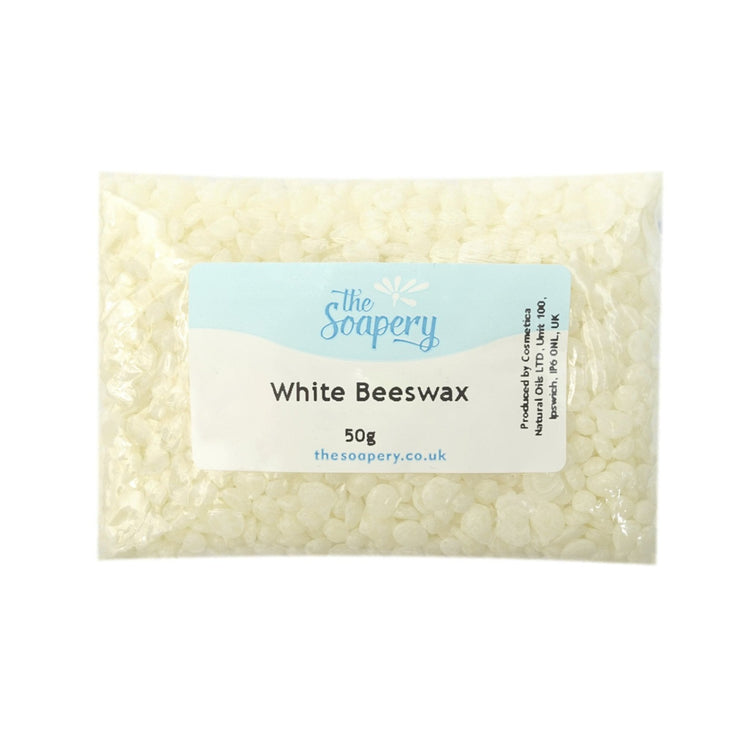
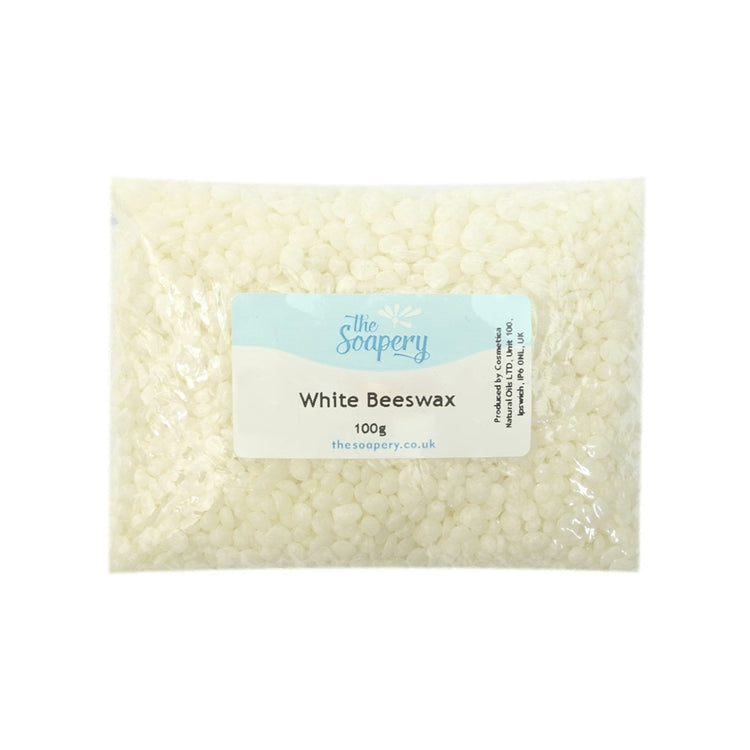
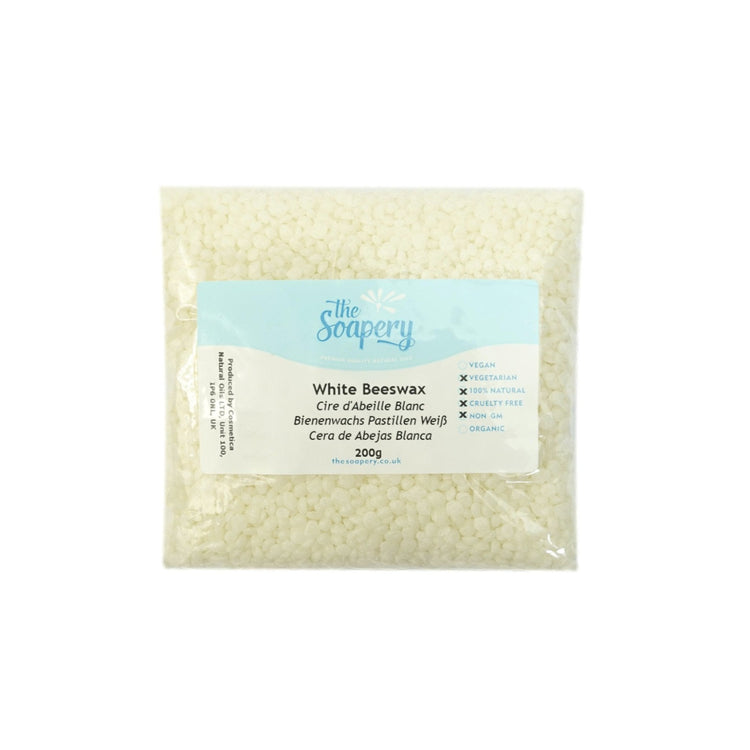
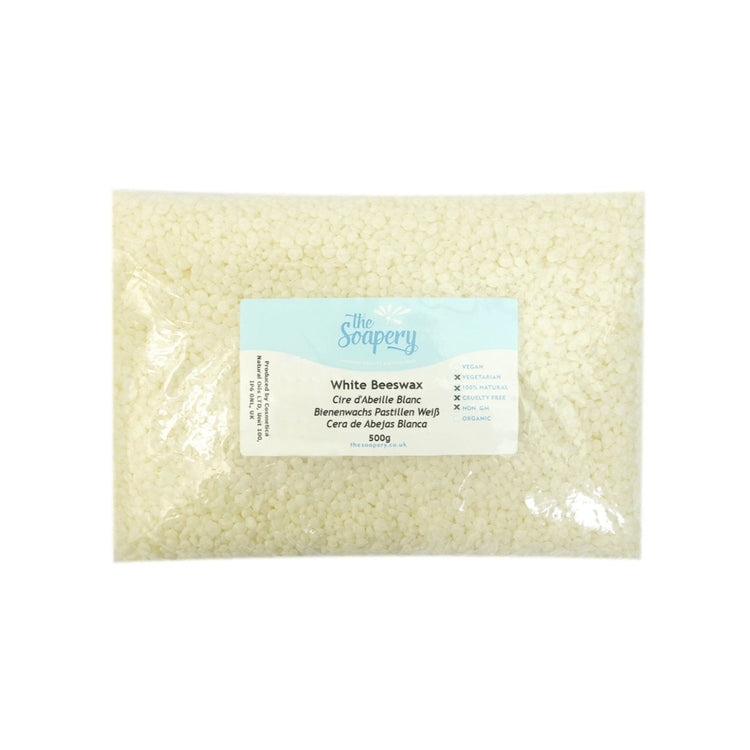
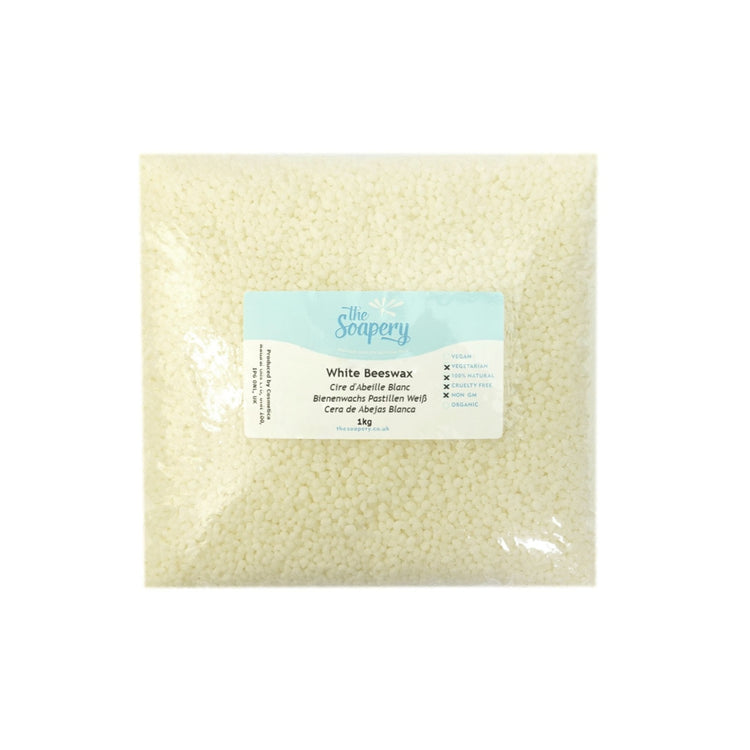
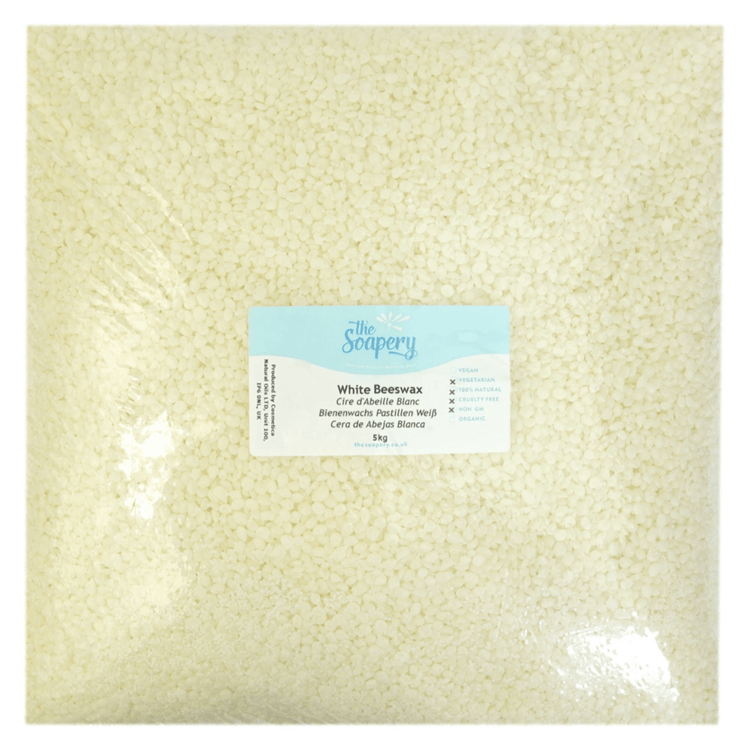
White Beeswax
What is white beeswax?
Beeswax is a natural wax produced by bees, which is often used in cosmetic products and making candles. White beeswax has been refined to remove the natural yellow colouring of beeswax.
Benefits of white beeswax
Beeswax is popular in many cosmetic products because of the way it forms a protective barrier on the skin, trapping moisture and keeping it hydrated. It is also often used as a thickener and to help harden soap bars.
White beeswax is often used for cosmetics and soaps because it allows colours to be added without having the natural colour affect the outcome.
How to use white beeswax?
White beeswax is most commonly used in soap making to add hardness to the soap bar. It can also be used in lotion bars and other homemade cosmetic products like moisturisers, creams and balms.
To find our simple cocoa lotion bar recipe, using beeswax, click here.
White Beeswax FAQs
What is white beeswax used for?
White beeswax can be used for many purposes in cosmetic products. It is often used as a thickener and to add a creamy feeling to the finished product.
This makes it a great ingredient for soap bars or lotion bars. It can also be used in other cosmetic products like moisturisers or creams.
Does beeswax grow hair?
We’ve seen quite a few claims that beeswax can help prevent hair loss. However, there are not many studies to support the hair growth claims.
What does white beeswax smell like?
White beeswax has a very neutral scent, you won’t notice it in your finished product.
Is beeswax good for the face?
Beeswax is great for helping to prevent dry skin as it creates a natural barrier on the skin and prevents moisture from evaporating.
How can you tell if beeswax is pure?
Purity can be an issue with beeswax. With many cheap, synthetic waxes available, some unscrupulous producers have been tempted to adulterate their beeswax.
First and foremost, we only deal with suppliers with whom we have an established relationship of trust. The final testing and processing of the beeswax is carried out in the UK, and common contaminants are tested for.
Technical documents
To find the technical documents click here.
